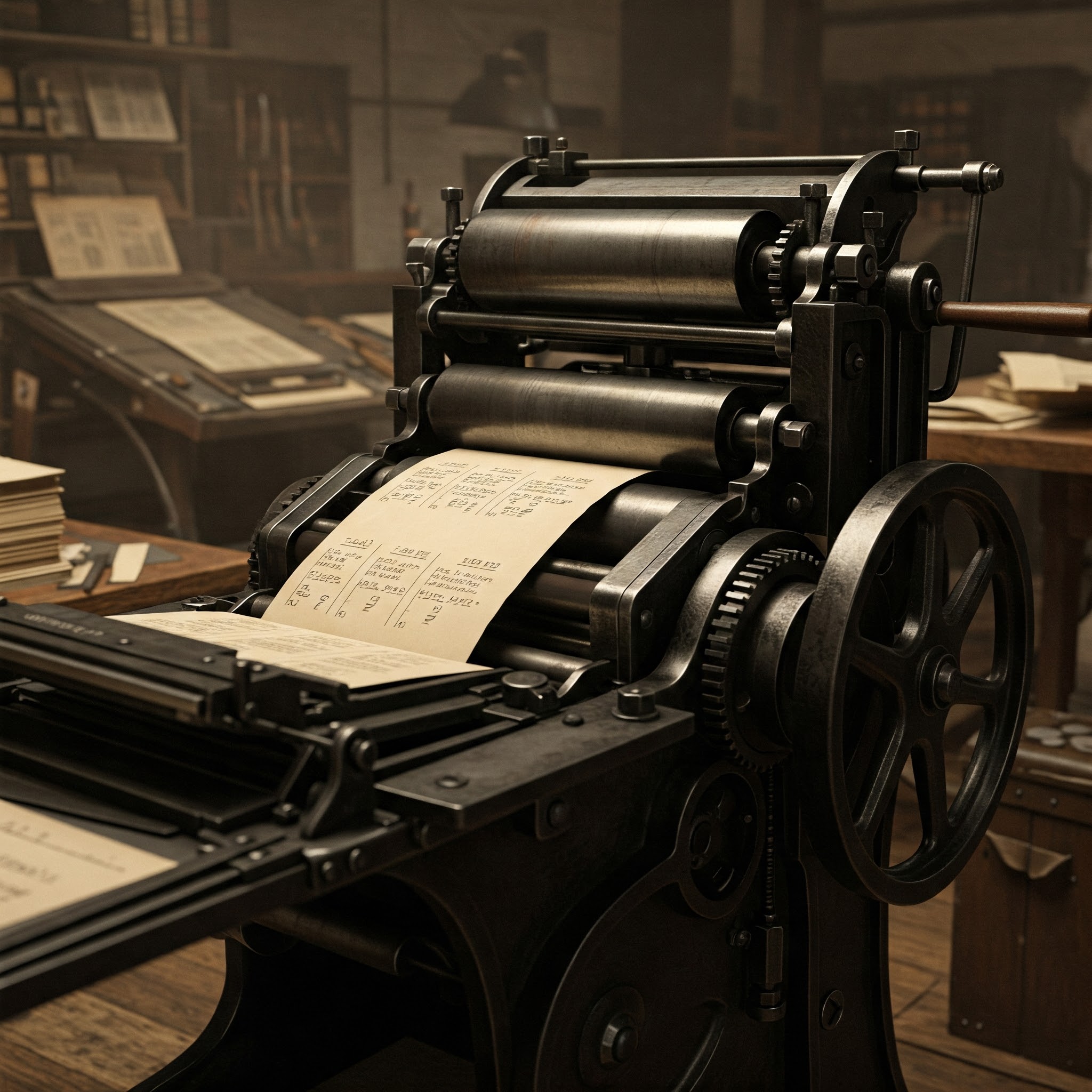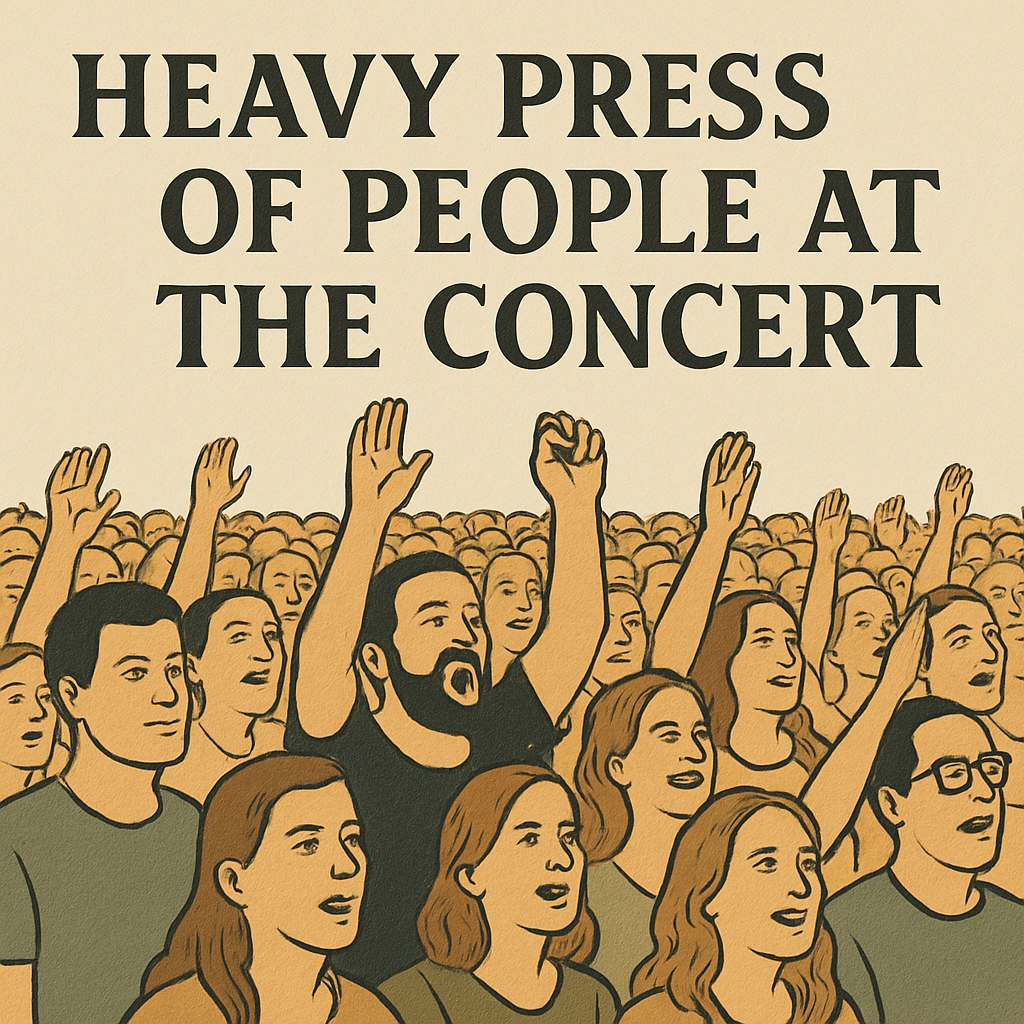Press
Definition
The term "press" describes the act of applying force to something, the media or journalists, or a mechanical device for pressing or printing.
Parts of Speech
- Noun
- Verb
Pronunciation
American English
- IPA Pronunciation: /prɛs/
- Respelling: PRES
British English
- IPA Pronunciation: /prɛs/
- Respelling: PRES
Etymology
The word "press" originates from the Latin "pressare," meaning "to press," derived from "premere" (to press or squeeze). It entered Middle English through Old French "presser."
Derivatives
- Pressure (noun)
- Pressing (adjective, noun)
- Pressman (noun)
- Pressroom (noun)
- Depress (verb)
Synonyms
- Push
- Squeeze
- Media
Antonyms
- Release
- Pull
- None
Usage
The term "press" is widely used in physical, journalistic, and mechanical contexts. For example, "He used a machine to press the fabric" or "The press covered the event extensively."
Related Terms
- Pressure: Continuous physical force applied to an object.
- Printing press: A device for producing printed materials.
- Journalism: The activity or profession of reporting news.
Detailed Definitions
Noun
- A device used for pressing or squeezing: Refers to a machine that applies force for shaping, compressing, or printing.
- Example: "The printing press revolutionized book production."
- The media or journalists collectively: Refers to organizations or individuals involved in reporting news.
- Example: "The press attended the conference to cover the event."
- A crowd or congestion: Refers to a situation of being crowded or pressed together.
- Example: "There was a heavy press of people at the concert."
Verb
- To apply force or pressure to something: Refers to the act of squeezing or pushing.
- Example: "She pressed the button to start the machine."
- To iron clothes: Refers to the act of smoothing or flattening fabric.
- Example: "He pressed his shirt before the interview."
- To urge or emphasize something strongly: Refers to the act of insisting or making a demand.
- Example: "She pressed him for an answer."
press



🇨🇳 Mandarin
- 按 (àn) - to press
- IPA: /an˥˩/
- English respelling: an
- 新闻 (xīnwén) - news, press
- IPA: /ɕin˥˩wən˧˥/
- English respelling: xin-wen
🇮🇳 Hindi
- दबाओ (dabao) - to press
- IPA: /d̪əbaːoː/
- English respelling: da-bao
- समाचार (samaachaar) - news, press
- IPA: /sʌmaːt͡ʃaːr/
- English respelling: sa-ma-char
🇪🇸 Spanish
- Presionar
- IPA: /pɾesjoˈnaɾ/
- English respelling: pres-yo-nar
- Prensa
- IPA: /ˈpɾensa/
- English respelling: pren-sa
🇫🇷 French
- Appuyer
- IPA: /apɥije/
- English respelling: a-pu-yay
- Presse
- IPA: /pʁɛs/
- English respelling: pres
🇸🇦 Modern Standard Arabic
- يضغط (yudghut) - to press
- IPA: /juːdʕutʕ/
- English respelling: yu-dghut
- الصحافة (as-sahaafa) - press
- IPA: /as.saħaːfa/
- English respelling: as-sa-haa-fa
🇧🇩 Bengali
- চাপ (chap) - to press
- IPA: /tʃap/
- English respelling: chap
- সংবাদ (songbad) - news, press
- IPA: /ʃɔŋbad/
- English respelling: shong-bad
🇷🇺 Russian
- Нажимать (nazhimat') - to press
- IPA: /nəʐɨˈmatʲ/
- English respelling: na-zhi-mat
- Пресса (pressa) - press
- IPA: /ˈprʲesːə/
- English respelling: pres-sa
🇵🇹 Portuguese
- Pressionar
- IPA: /pɾɨʃuˈnaɾ/
- English respelling: pre-shu-nar
- Imprensa
- IPA: /ĩˈpɾẽsɐ/
- English respelling: in-pren-sa
🇮🇩 Indonesian
- Tekan
- IPA: /təkan/
- English respelling: te-kan
- Pers
- IPA: /pərs/
- English respelling: pers
🇩🇪 German
- Drücken
- IPA: /ˈdʁʏkən/
- English respelling: druk-en
- Presse
- IPA: /ˈpʁɛsə/
- English respelling: pre-se
🇯🇵 Japanese
- 押す (osu) - to press
- IPA: /o̞sɨᵝ/
- English respelling: o-su
- 新聞 (shinbun) - newspaper, press
- IPA: /ɕimbɯ̟ᵝɴ/
- English respelling: shin-bun
🇻🇳 Vietnamese
- Nhấn
- IPA: /ɲəːn˧/
- English respelling: nyan
- Báo chí
- IPA: /ɓaːw˨˩ cɪj˨˩/
- English respelling: bao chi
🇰🇷 Korean
- 누르다 (nureuda) - to press
- IPA: /nuɾɯda/
- English respelling: nu-reu-da
- 언론 (eonron) - press
- IPA: /ʌnron/
- English respelling: un-ron
🇹🇷 Turkish
- Basın
- IPA: /basɯn/
- English respelling: ba-sun
- Gazete - newspaper, press
- IPA: /ɡaˈzete/
- English respelling: ga-ze-te
🇵🇰 Urdu
- دباؤ (dabao) - to press
- IPA: /d̪əbaːoː/
- English respelling: da-bao
- صحافت (sahaafat) - press
- IPA: /səɦaːfat̪/
- English respelling: sa-ha-fat





